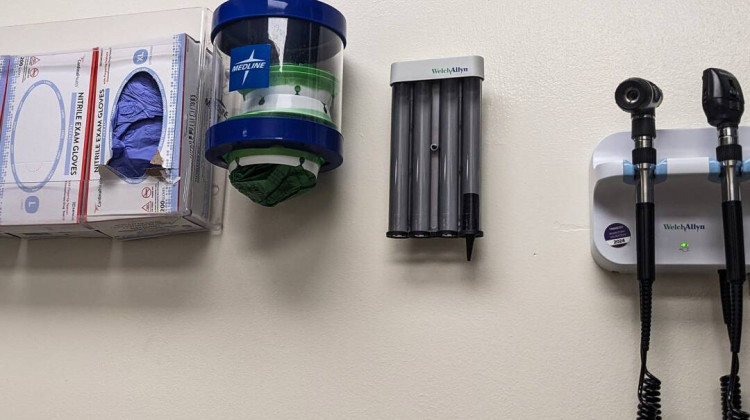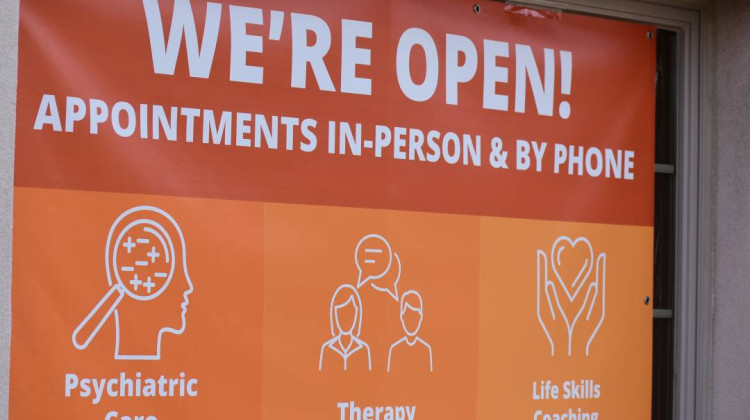
Baby box supporters, led by Sen. Travis Holdman (R-Markle), center, discuss the baby box expansion bill at the start of the 2018 session.
Brandon Smith/IPB NewsThe Indiana Senate unanimously passed legislation Tuesday to expand locations where baby boxes can be used, even as some senators express concerns surrounding the devices.
Baby boxes are meant to be a more anonymous way for people to drop off unwanted newborns. Legislation passed in 2017 allowed hospitals to house the devices in a conspicuous area and with an alarm. Last year’s law also grandfathered in the state’s two existing boxes, which are in volunteer firehouses.
This year’s measure would allow all firehouses staffed 24/7 to install baby boxes.
But Sen. Greg Taylor (D-Indianapolis) says he doesn’t like a provision in the bill – also contained in last year’s law – the gives those firehouses immunity from negligence or misconduct claims.
“The mere fact that negligence in this situation would allow someone to escape and have immunity concerns me, because we’re talking about babies,” Taylor says.
And Sen. Jean Breaux (D-Indianapolis) says the state should address the underlying issues for why baby boxes are needed at all.
“Let’s put something in place that prevents these unplanned pregnancies, that prevents putting women in that place to have to make these decisions,” Breaux says.
The bill now goes to the House.
 DONATE
DONATE









 Support WFYI. We can't do it without you.
Support WFYI. We can't do it without you.